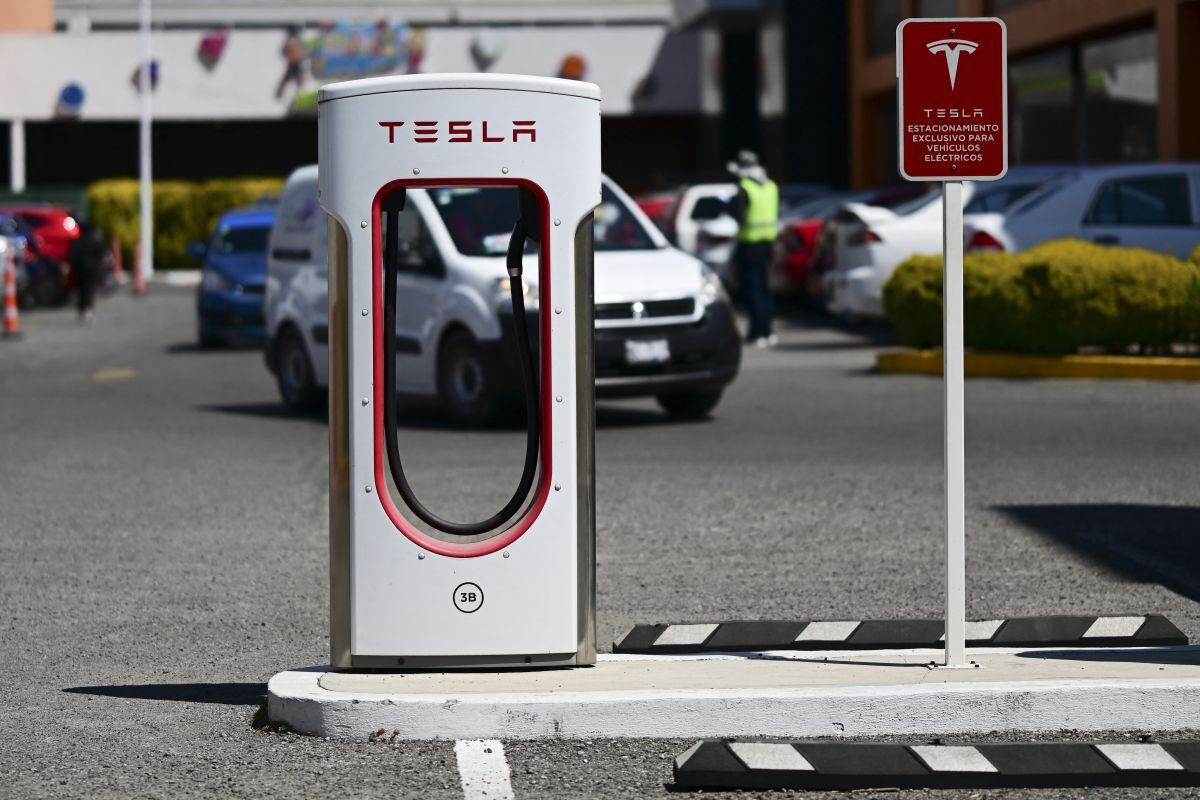
The plan of Tesla Inc. to open a $5 billion “Gigafactory” in Mexico It will lead the country to become a hub for electric vehicle (EV) production, but these cars remain too expensive for most Mexicans and impractical in much of the country due to a shortage of charging stations.
Mexico it has made reviving fossil fuel production a priority under President Andrés Manuel López Obrador, and has often given little importance to investing in renewable energy sources.
But it also has big ambitions to boost the purchase of electric vehicles while Tesla joins in the northern border state of Nuevo León General Motors Co, Ford Motor Co, BMW and Volkswagen’s Audi unit that are also producing EVs in Mexico, or planning to do so, plus at least one local manufacturer, Zacua, which is not traded.
Foreign Minister Marcelo Ebrard, a leading contender to be Mexico’s next president, said the government wants EVs to account for half of the cars sold in the country by 2030. Officials said that goal includes all zero-emission vehicles. , also hybrids and hydrogen. Even so, it will be very difficult to get there.
EVs accounted for just 0.5% of domestic car sales last year, according to the Mexican Association of the Automotive Industry, AMIA, well below the US share of 5.8%, according to research firm Motor Intelligence. Adding hybrids, Mexico reaches 4.7%.
“I think there are still several issues that need to be resolved before we see the mass arrival of electric cars”said Mario Hernández, leading partner of KMPG’s production segment in Mexico.
Hernández said the drawbacks included a lack of subsidies for shoppers, the high costs to install charging devices in homes and a shortage of public charging stations, vital for longer trips. Unlike other countries, Mexico has not yet agreed on a plan to phase out gasoline-powered vehicles, he added.
Nearly 1.1 million new cars were sold in Mexico last year, of which just 5,600 were electric vehicles, far fewer than the 8,400 sold in Latin America’s largest auto market, Brazil.
However, production of electric vehicles in Mexico was expected to increase to 142,000 cars this year from 78,000 in 2022, estimated the Mexican group the National Auto Parts Industry (INA), before Tesla announced its new plant.
AMIA’s top executive, José Zozaya, told Reuters that he still “There are very few incentivess” to promote the sales of electric vehicles in the public policies of the country. “This change in technology is going to take place in the world with Mexico or without Mexico.”
“I have my reservations that we can reach that number”said Nazareth Black, executive director of the electric vehicle manufacturer Zacua, speaking of the government’s goals. “It would be very necessary to really develop a government incentive plan so that you can really accelerate the adoption of electric vehicles.”
RANK ANXIETY
Elsewhere in Latin America, countries from Costa Rica to Chile have included electric vehicle targets to cut emissions toward their commitments to the 2015 Paris climate accords. Mexico has so far shyed away from such pledges.
The country would need more charging stations to make electric vehicles practical. Mexico has some 1,100 charging points nationwide, the majority in the capital and other major cities, according to AMIA. New York state alone has 9,000, according to the governor.
Pedro Corral, director of operations for the Evergo EV charging station platform, drives his all-electric BMW i3 through Mexico City. But when he leaves the capital, he usually switches to a fuel-powered Toyota to avoid running out of charge.
Evergo aims to install 4,000 chargers for public use in the next four years in the country, betting on the growing appetite for electric vehicles.
Still, Corral noted that current numbers suggest Mexico’s targets are unrealistic and expressed doubts that curiosity about Tesla’s new factory is translating into a boost in sales.
Tesla’s cheapest model, which costs about $55,000, plus the cost of a charger, means most Mexicans can’t afford it. Cheaper models like the Nissan Leaf cost more than $50,000 and even Zacua’s two-seaters are around 600,000 pesos ($31,767).
The Mexican worker earns an average of 366 dollars a month, according to official data, and the legal minimum wage guarantees a payment of around 11 dollars a day.
“There are great benefits to owning an electric car,” Corral said. “(But) in addition to being expensive, a lot of people are stuck on this part of range anxiety.”
Source: Reuters
Source: Gestion
Ricardo is a renowned author and journalist, known for his exceptional writing on top-news stories. He currently works as a writer at the 247 News Agency, where he is known for his ability to deliver breaking news and insightful analysis on the most pressing issues of the day.












